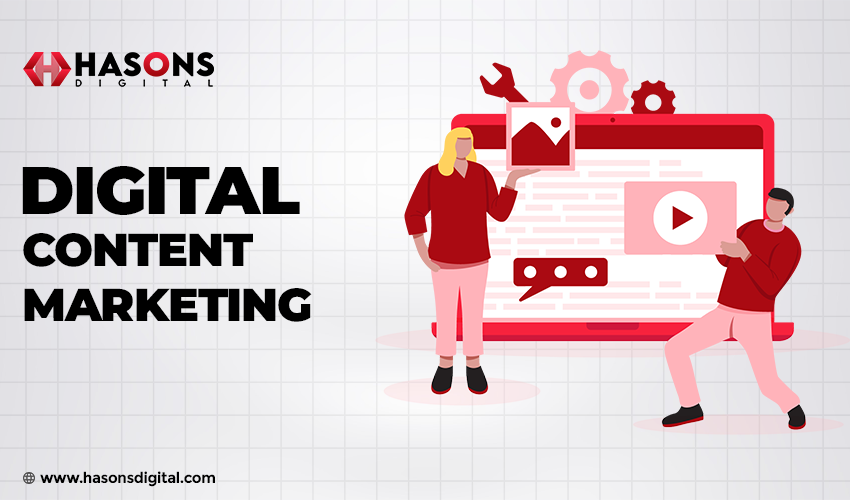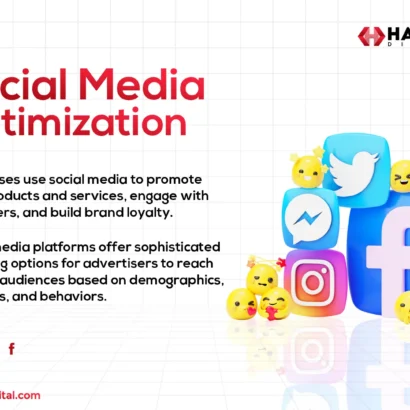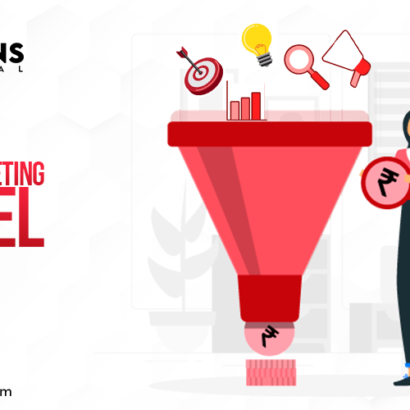Digital content marketing (introduction)
This is digital content marketing at play, where the creative strategy is aimed at engaging audiences and delivering results. In the present world, one can notice how the use of content is dominating in the customer engagement strategies of various companies. Whether it’s through status updates on Facebook, articles on the corporate blog, or videos on YouTube, digital content marketing is one of the staples in today’s marketing mix. Without further ado, let’s break down the why of it, some of the well-established brands that are killing it, and, yes, the benefits, as well as the step-by-step approach to a great digital content marketing strategy.
Definition of Digital Content Marketing
Digital content marketing is defined as the process of preparing and sharing purposeful and interesting content to capture and keep an audience’s attention. It is a promotional strategy where a business offers the consumer knowledge, entertainment, or motivation while the consumer gets to sample the company’s products or services.
Issues, including but not limited to websites, social media, emails, and other forms of media, enable businesses to post information, products, and services directly to the target demographic.
It demonstrates how companies can use languages of text, images, videos, and more to persuade consumers by building their reputation as market leaders among the massive competition that is so prevalent online.
Content marketing is a business and marketing solution for the selection, creation, and delivery of content in order to attract and engage a set of designated. Digital marketing particularly targets consumers through the use of the web, Facebook, blogs, and email, among other options.
This marketing approach is content marketing; it is the optimum way of creating and sharing valuable, relevant, and consistent information that attracts the target market towards profit.
Unlike advertising products or services, good and relevant content marketing provides solutions to the problems beseeching your prospects and customers in their workplace setting for B2B content marketing or in their homes for B2C content marketing.

Why Use Digital Content Marketing
As the world advances and becomes more digital, digital content marketing is a useful tool that businesses can use to target their audience. Sharing useful and interesting information transforms consumers into not only viewers but also makes them interested in brands. Some of the forms through which brands can reach out and share content based on the tastes of customers are social media, emails, and websites.
In addition, digital content marketing provides opportunities for businesses to determine the effectiveness of advertising campaigns in real time. Some examples of using analytics tools are the tracking of web traffic, the level of engagements, and/or conversion rates. This makes it possible for the brands to improve on their strategies as they follow the things that appear to work well among people.
In the same respect, digital content marketing also makes a lot of sense when it comes to the cost of marketing as compared to other techniques. Businesses are then able to advertise their goods and services to a wider market on the internet with a much cheaper effort than other traditional means. The accessibility of this demographic makes the ROI of digital content marketing campaigns even higher.
Marketing within the digital platform is thus a significant aspect of the marketing mix, as it helps the business reach the intended market. This implies, in effect, that consumers value the quality content generated by recognized brands for positive engagement to compel them to buy commodities.
What Are Some Examples of Brands Using Digital Content Marketing?
It is important to note that this is a list of brands that are very innovative when it comes to digital content marketing. For instance, Red Bull. They have developed a strong form of image advertising through the use of videos based on thrilling stunts in extreme sports.
Nike is another great example, where Nike uses motivational stories through various avenues, including social media, blogs, and videos. Having interacted with its audience in the manner discussed in this paper, Nike has cemented its position as a pioneer in the industry.
Also, Hub spot has adopted the use of educational content when attracting and maintaining its clients in the market. Their blog posts, webinars, and e-books are rich with useful information that sets them apart as industry gurus in marketing.
Red Bull: Within this digital content marketing strategy, it has been extremely useful, especially with the extreme sporting videos and other occurrences that are in line with the core aim of the brand.
Tasty: It is a food media brand, and each month they upload a recipe video on different social media sites where they advertise their products and their brand and direct the user to their official website.
Airbnb: This specific industry shares their knowledge in the form of traveller reviews, tips, and itineraries on the blog page of their website.
Content is the Present and Future of Marketing
Content is the most important element of contemporary communication and marketing campaigns. Marketing is not just the process of placing a product on the market for sale; it is also about developing and providing useful and interesting content to the audience. Digital content marketing enables brands to engage closely with their market, something that fosters commitment.
Another advantage of digital content marketing is the possibility of improving the brand’s presence on the internet. When quality content is delivered on a regular basis, the business benefits in the areas of reputation and visibility and draws in new customers. This in turn results in increased website traffic, better ranking on the search engine, and thereby improved conversion ratios.
Further, digital content marketing enables business organizations to reach audiences at relatively low costs due to their online reach. Unlike normal advertisement techniques, which demand so much money, advertising with celebrities through several online platforms entails minimal costs but should yield huge returns. Also, it makes it possible to engage consumers directly and promote lasting relationships with the company that create value in the long run.
As in any modern setting, content remains the key factor determining the current and future state of writing. Content marketing is the most potent tool to make brands come out of the clutter of traditional advertising and engage with consumers in a far richer way in the context of the digital world.
What Are the Benefits of Digital Content Marketing?
Increased Brand Awareness: Therefore, always producing great content helps businesses increase attention, set themselves up, and grow their audience.
Improved Customer Engagement: It is also noteworthy that, by publishing the content on the Web, brands can interact with customers and address any comments that may be made.
Enhanced SEO Performance: Quality content and well-written material increase the chances of the site ranking for those keywords, bringing more traffic to the site.

How to Create a Digital Content Marketing Strategy
Nowadays, it is important for any brand to have a proper digital content marketing strategy because it is essential for brands to perform well. When you take your time to figure out your target market, state goals, research keywords, and analyse your content’s performance regularly, you stand to benefit from a sound strategy that will deliver on its promise. It is also important for them to remain ad-age and innovative to counter ever-changing trends in the digital landscape for sustainable marketing. Through commitment and innovative thinking, as well as well-coordinated planning, you can build effective digital content marketing communication that will fit and enhance your organizational branding and audience engagement.
- Define Your Goals: Before proceeding with the digital content marketing strategy, you have to set your targets and what you want to achieve with them.
- Identify Your Target Audience: Determine who your readers are in order to establish who you are writing to and what type of material they appreciate.
- Create Valuable Content: Pen down information that will educate the viewers, capture their attention, or else stir the emotions of the supporters.
- Distribute Across Channels: Make sure that whatever content the firm generates is shared through as many other relevant online channels as possible.
- Measure and analyze results: Make use of the statistics present in evaluating the efficiency of the content and the results obtained so far.
Conclusion
Thus, digital content marketing refers to the use of the same content to market products and services to customers, as it can be a useful tool for businesses that seek to reach their consumers online. Valuable content is an essential tool for promoting a brand, asserting its leadership, and building a rapport with users while focusing on conversion in the online environment.
| If you are reading Digital Content Marketing then also check our other blogs: | |
| Types of Email Marketing | Pay Per Click |
Digital Content Marketing
- What is content marketing?Content marketing is a strategic marketing process that helps in creating and sharing content in order to foster business goals and attract the intended target market.
- What types of content can be used in content marketing?There is always a way of measuring success in content marketing by checking for indicators such as website traffic, engagement, conversion, and return on investment.
- How can I measure the success of my content marketing efforts?Fortunately, one can always find the method of content marketing by tracking signs, including traffic, participation, conversion, and profitability.
- How can I repurpose content?Content can be repurposed by adapting it for different formats and channels, updating outdated content, or recycling evergreen content with a fresh angle.



